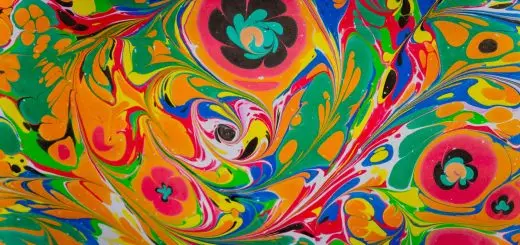The Role of Sacrifice in Ancient Beliefs

Looking for more amazing products? Check out our online store and explore our collection here! Happy shopping!
Before diving in, please note: This post is for informational purposes only. If you’d like to know more about how we approach topics, feel free to check out our friendly Disclaimer Page.
Hey there, amazing readers! 
We’re committed to delivering quality posts, and your support (even just sticking around despite the ads) means everything to us. So, bear with us, and thanks for helping us keep the good vibes rolling. Now, on to the fun stuff!
TRANSLATE BUTTON AT THE END OF THE ARTICLE
A Quick Overview
Sacrifice is one of those fascinating, complex concepts that has woven itself into the fabric of ancient civilizations.
When we think of sacrifice, we often consider the dramatic rituals or the dramatic imagery depicted in movies or textbooks.
But it’s so much more profound!
Sacrifice was not merely about offering something up; it was about establishing connections, expressing devotion, and even securing a community’s survival.
In this article, we’ll dive deep into the various facets of sacrifice in ancient beliefs, exploring why it mattered then and what it says about humanity’s quest for meaning.
Understanding Sacrifice: A Key Element of Ancient Cultures
Sacrifice can take many forms.
In ancient cultures, it often served as a bridge to the divine, a way to communicate with gods, spirits, or ancestors.
Why?
Well, think of it as an ancient form of currency.
People believed that to receive blessings or protection, they had to give something valuable in return.
Spiritual Connection: In societies ranging from the Egyptians to the Maya, sacrifice was a way to maintain a relationship with the divine.
It was believed that gods required offerings to sustain the cosmos.
Cultural Practices: Every culture had unique methods of sacrifice, from food offerings to ritualistic acts.
These practices were deeply embedded in cultural identity.
Community Cohesion: Sacrifices often brought communities together, fostering a sense of belonging.
They were shared events that united people around a common purpose.
Teaching Values: Sacrificial rituals often reinforced social norms and values, teaching younger generations about duty and commitment to the community.
Historical Documentation: Ancient texts, such as the Epic of Gilgamesh, include references to sacrifices, providing historians with insights into cultural values and priorities.
In essence, sacrifice acted as a multifaceted tool, shaping social, spiritual, and cultural landscapes.
The Symbolism of Sacrifice in Early Societies
The symbolism of sacrifice runs deep.
It varies across cultures, but fundamentally, it represents the act of giving up something valuable to achieve a more significant purpose.
Life and Death: Sacrifice often symbolizes the cycle of life and death.
By giving something up, communities believed they could ensure fertility, abundance, and protection.
Transformation: Sacrifice can represent personal or communal transformation.
By letting go, individuals could embrace change, becoming better versions of themselves.
Rebirth: Many ancient cultures associated sacrifice with rebirth.
Just as crops die in winter to bloom again in spring, sacrifices were seen as a way to usher in new beginnings.
Purification: The act of sacrificing something often served a purifying function.
It was thought to cleanse individuals or communities of sins or misfortunes.
Gift Economy: Sacrifice also operated within the framework of a gift economy.
By giving to the gods, people expected a return on their investment, often in the form of protection or prosperity.
Through these symbolic layers, sacrifice became a powerful tool to express humanity’s connection with the universe.
Ritual Sacrifices: Connecting the Divine and Earthly
Ritual sacrifices were formalized practices that established a connection between the earthly realm and the divine.
They were often elaborate, steeped in tradition and symbolism.
Ceremonial Importance: Rituals were performed with strict guidelines.
The setting, the participants, and the offerings were all significant, as they had to please the gods.
Specific Times and Places: Many cultures had designated times for sacrifices, such as harvest festivals or specific lunar phases, emphasizing their sacredness.
Roles of the Priesthood: In many societies, priests or shamans acted as intermediaries.
They performed sacrifices on behalf of the community, ensuring proper protocol was followed.
Communal Participation: While priests led the ceremonies, community members often participated.
Their involvement reinforced the collective nature of the act.
Element of Awe: The dramatic aspects of ritual sacrifices—sights, sounds, and even smells—created an atmosphere of awe and reverence.
Through these rituals, ancient peoples believed they could tap into supernatural power and influence worldly events.
Sacrifice as a Means of Seeking Favor from Gods
One of the most practical reasons for sacrifice was the hope of garnering favor from the gods.
Bountiful Harvests: Agrarian societies often sacrificed to ensure fertile land and good weather.
Protection in War: Soldiers might sacrifice before battle, seeking divine favor for victory and safety.
Healing Rituals: In times of illness, people would offer sacrifices to deities associated with health, asking for cures or protection from disease.
Divination: Sometimes, sacrifices were used as a way to invoke or interpret the will of the gods.
The outcomes could dictate future actions.
Reciprocal Relationship: Sacrificers often believed in a give-and-take relationship, expecting blessings in return for their devotion.
This practical aspect of sacrifice underscores how deeply intertwined spirituality and daily life were in ancient cultures.
The Role of Animals in Ancient Sacrificial Practices
Animals played a critical role in sacrificial practices across various cultures, often seen as valuable offerings.
Symbol of Abundance: Livestock were often the choice for sacrifices.
They represented wealth and were a tangible way to show devotion.
Types of Animals: Different cultures had specific animals associated with particular gods.
For example, in ancient Rome, lambs were often sacrificed to Mars, the god of war.
Ritual Slaughter: The act of killing an animal was surrounded by ritualistic elements, often designed to minimize suffering and show respect.
Shared Meals: After the sacrifice, the animal’s meat was often shared among the community, reinforcing social bonds.
Moral Implications: The ethical considerations surrounding animal sacrifice have evolved over time, leading to philosophical debates in various cultures.
These practices highlight a complex relationship between humans and the animal kingdom and emphasize the importance placed on offerings.
Food Offerings: Nourishment for the Gods and Spirits
Food offerings were an essential aspect of ancient sacrificial practices.
They served not just as gifts but also as a means of sustenance for deities.
Types of Offerings: Offerings included grains, fruits, and prepared dishes.
Each type of food had its own significance and was often tied to seasonal cycles.
Ancestral Connections: Families often made offerings to ancestors, ensuring they were nourished in the afterlife, thus maintaining familial bonds across generations.
Feasting: Festivals often revolved around food offerings.
After sacrifices, communal feasts celebrated the gods, bringing communities together.
Symbolism of Food: Different foods carried various symbolic meanings.
For instance, bread might symbolize life, while wine could represent joy.
Cultural Traditions: Many cultures have specific customs for food offerings, often passed down through generations, creating a rich tapestry of traditions.
Food offerings served as a tangible way of expressing devotion and gratitude, enriching the spiritual experience.
Human Sacrifice: A Taboo Yet Powerful Belief
While many cultures practiced animal sacrifice, human sacrifice remains one of the most controversial and compelling aspects of ancient beliefs.
Ritual Significance: Human sacrifice was often seen as the ultimate offering, reserved for significant events or dire circumstances.
Cultural Context: In some societies, it was believed that giving a life would divine favor.
For example, the Aztecs famously practiced human sacrifice to honor their gods and ensure the sun’s return.
Political Power: Leaders sometimes used human sacrifice to demonstrate power or sway public opinion, reinforcing their authority.
Moral Ambiguities: Human sacrifice raises ethical questions that persist today, leading to debates about morality and the value of life.
Legacies in Mythology: Many myths explore themes of human sacrifice, underlining its cultural significance and complexity.
Although often viewed through a lens of horror today, human sacrifice was deeply rooted in the belief systems of many ancient cultures.
Festivals and Sacrifices: Celebrating the Divine
Festivals often centered around sacrifice, marking important religious occasions and bringing communities together.
Seasonal Celebrations: Many festivals aligned with agricultural cycles, celebrating harvests or fertility through sacrifices.
Public Participation: Festivals encouraged communal involvement, reinforcing social bonds.
Everyone played a role, from preparation to participation.
Grand Rituals: Festivals often included elaborate rituals, music, and dance, creating a vibrant atmosphere of joy and reverence.
Liminal Spaces: These events created sacred spaces where the divine and earthly realms could intersect, fostering a sense of wonder.
Culinary Traditions: Special foods associated with festivals often emerged from sacrificial practices, influencing culinary traditions.
These festivals served as profound expressions of collective identity and commitment to the divine.
Sacrificial Practices Across Different Civilizations
Across the globe, sacrificial practices exhibit both remarkable similarities and fascinating differences.
Mesopotamia: Early civilizations like the Sumerians and Babylonians offered grain, livestock, and sometimes humans to appease their deities.
Ancient Egypt: The Egyptians practiced both animal and human sacrifice, often associated with funerary rites to ensure safe passage to the afterlife.
Mesoamerica: The Aztecs and Maya are well-known for their human sacrifices, integral to their religious beliefs and practices.
Greece and Rome: In ancient Greece, sacrifices were common at temples, while Romans performed sacrifices to honor their gods, particularly during state events.
Indigenous Cultures: Many indigenous cultures around the world have unique sacrificial practices rooted in their beliefs and relationships with nature.
While the specifics differ, the underlying reasons for sacrifice reflect shared human concerns about spirituality, community, and the natural world.
Myths and Legends: Stories Surrounding Sacrifice
Many myths and legends encapsulate the theme of sacrifice, conveying moral lessons and cultural values.
Abraham and Isaac: This biblical story illustrates the complexities of faith and obedience, with Abraham willing to sacrifice his son at God’s command.
Prometheus: In Greek mythology, Prometheus’ sacrifice of his immortality for humanity’s benefit underscores themes of selflessness.
Incan Mythology: The story of the Inca god Inti highlights the necessity of sacrifices to ensure the sun’s return, connecting the divine with agricultural cycles.
The Tale of Orpheus: Orpheus’ descent into the underworld to save his wife reflects the sacrifices made for love and loyalty.
Cultural Transmission: These myths persist across generations, evolving but retaining core themes that resonate with contemporary audiences.
These stories offer insight into the cultures that created them, reflecting their values and beliefs about sacrifice.
Modern Reflections: Sacrifice in Today’s World
In today’s complex society, the idea of sacrifice still holds significant meaning, albeit in different forms.
Personal Sacrifice: Many people make sacrifices for their families, careers, or causes they believe in, echoing the values of ancient societies.
Cultural Rituals: Many cultures still practice traditional sacrificial rituals, maintaining ties to their ancestors and spiritual beliefs.
Ethical Consumption: In contemporary discussions, the idea of sacrifice manifests in food choices and ethical consumption, where individuals may forgo certain products to align with their values.
Social Responsibility: Today’s activists often highlight the need for sacrifice in the fight against social injustices, urging people to give up comforts for the greater good.
Spiritual Journeys: Many modern spiritual practices incorporate elements of sacrifice, focusing on letting go of negativity or harmful habits for personal growth.
These reflections show that while the context may change, the essence of sacrifice remains relevant in our lives.
The Enduring Legacy of Ancient Sacrificial Beliefs
Ancient sacrificial beliefs continue to influence various aspects of contemporary life.
Cultural Traditions: Many cultural festivals and rituals draw from ancient practices, keeping the spirit of sacrifice alive.
Philosophical Discussions: The ethical considerations surrounding sacrifice prompt ongoing debates in philosophy and ethics.
Literature and Art: The theme of sacrifice recurs in literature and art, influencing storytellers, poets, and artists through the ages.
Religious Practices: Many modern religions still include elements of sacrifice, whether through prayer, offerings, or personal sacrifices for faith.
Collective Memory: Sacrifice remains a powerful symbol of devotion, resilience, and community, echoing through our collective memory.
Ultimately, the legacy of ancient beliefs about sacrifice reminds us of our shared humanity and the lengths we will go to nurture connections, uphold traditions, and seek meaning.
In conclusion, the role of sacrifice in ancient beliefs is rich and multifaceted.
It served as a vital element in establishing connections between humans and the divine, reflecting cultural values, and fostering community cohesion.
As we navigate our lives today, it’s fascinating to see how these ancient practices still resonate within us, guiding our choices and shaping our understanding of devotion, love, and responsibility.

The Enlightenment Journey is a remarkable collection of writings authored by a distinguished group of experts in the fields of spirituality, new age, and esoteric knowledge.
This anthology features a diverse assembly of well-experienced authors who bring their profound insights and credible perspectives to the forefront.
Each contributor possesses a wealth of knowledge and wisdom, making them authorities in their respective domains.
Together, they offer readers a transformative journey into the realms of spiritual growth, self-discovery, and esoteric enlightenment.
The Enlightenment Journey is a testament to the collective expertise of these luminaries, providing readers with a rich tapestry of ideas and information to illuminate their spiritual path.
Our Diverse Expertise
While our primary focus is on spirituality and esotericism, we are equally passionate about exploring a wide range of other topics and niches 

To ensure we provide the most accurate and valuable insights, we collaborate with trusted experts in their respective domains 
Our blog originally focused on spirituality and metaphysics, but we’ve since expanded to cover a wide range of niches. Don’t worry—we continue to publish a lot of articles on spirituality! Frequently visit our blog to explore our diverse content and stay tuned for more insightful reads.
Hey there, amazing reader! 
Check out our store here and take a peek at some of our featured products below! Thanks for being awesome!












